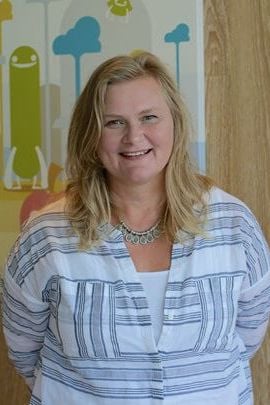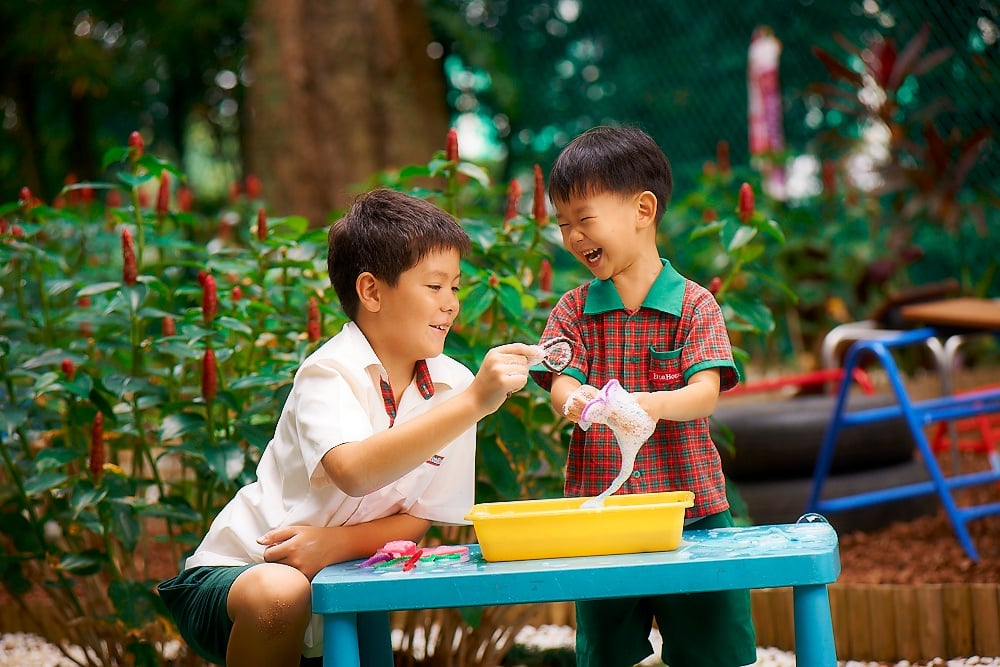
Tina Stephenson-Chin
Previous Executive Director of Pedagogy, Tina oversees Reggio Emilia (Asia) and a range of professional development initiatives. Tina has been an active contributor to popular and academic publications, in Canada and Asia, on a range of behavioral and education issues for the past 10 years. She was previously Senior Lecturer for Middlesex University London and Open University Hong Kong in teacher qualification granting programmes including their Honours B.A. in Early Childhood Studies – the only bachelor’s degree in education from a foreign institution fully-accredited in Hong Kong. She is also a member of the Ontario College of Teachers in Canada and The National College of Teaching and Leadership in the U.K.
Our schools have wonderfully diverse groups of families with expatriate children making up at least sixty percent of our school communities - sharing learning journeys with them is our work and our passion.
Our community of parents, children, teachers and administrators are from all over the world, and our local population has a strong global mindset. We are worldwide to our core, and we love it! About six out of ten children who enrol in our school are speaking a language other than English at home. Our current list of mother tongue languages is quite impressive; currently, we have Dutch, German, Flemish, French, Spanish, Russian, Afrikaans, Portuguese, Japanese and Mandarin speaking families at our school.
How do you then address the needs of expat children that may speak a different native language or just be from a different culture?
Learn, talk, think and play
Children love to learn, talk, think and play -- and so they often come to us with all the tools they will need to adapt. Moreover, they do not just adjust: They make friends, explore, learn and grow. It is beautiful to watch them flourish in the English and Mandarin environments we offer them.
Exploring traditions, language and nationality
Inquiring into culture and language is a vital part of our learning experiences. Young children have few fixed ideas and opinions about how the broader world should be; they are quite genuinely open-minded and curious. We love cultural and national celebrations - not just Singapore’s - but also European, North American, Japanese, Chinese and Indian. We too like to cook food from all over the world in our cooking atelier. Sharing festivals and traditions from home and learning about others is essential to our work here. International-mindedness is something we invest in, and serving an international community does not mean just accommodating a few children -- the beauty of our community is that it is indeed global.
Stability and routine
Changing homes, starting new jobs, adapting to all the demands of life in a new and colossal city: all are regular challenges parents face when they relocate. However, starting school provides stability and routine for children and then therefore for their parents. Schools like EtonHouse brings them a community full of families with similar experiences, and the teachers are often the first adults in their new home who care deeply for their children and can provide a vital touch point for young children and their parents. I have seen over and over that starting at a small and personal school like ours is often their first and most crucial real step in the settling process.
The vast majority of children settle in beautifully; in fact, in my 18 years of work as an early childhood practitioner in Asia, I have rarely seen a child who has failed to adjust to their new surroundings. In general, young children adapt faster than their parents. Coming from a different context and adapting quickly to their new home helps them develop resilliance.
Be a part of our global community of learners.


